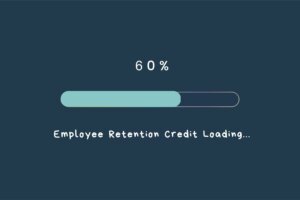1. Proposed Changes to CFC Regulations Update: How You Can Help Save the Combined Federal Campaign – Part II
by Bill Huddleston
As I mentioned, last week, even after the Congressional Hearing, there has been no public response from the OPM staff to the concerns raised about the proposed regulations.
What does that mean?
Having worked in-and-with bureaucratic organizations for over 25 years, I understand that a bureaucracy’s first reaction in a controversy is often to deny it. That’s what OPM is doing; they are refusing to acknowledge that they have screwed up big time.
What’s the likely next step?
The bureaucrat’s second reaction is often anger; and, coupled with denial, the likelihood is that OPM will publish the proposed regulations with minimal changes to their original publication. Those in the know estimate that this is likely to occur in late winter or early spring.
What can you do to help save the CFC?
Here are three steps you can take that can have significant impact on the future of the CFC.
1. If you are currently in the CFC, record what it means to you and your organization in terms of unrestricted revenue, and the impact it has had on your non-profit’s ability to meet its mission.
2. Write a letter or call the office of the new Director of OPM, Katherine Archuleta, outlining your concerns.
3. Call your Congressman and Senators and ask why OPM is trying to damage the CFC beyond repair at a time when so many people need the services provided by the CFC charities.
An important point to make is that OPM did not follow the recommendations of the CFC-50 Commission, which was chaired by two former members of Congress, Tom Davis and Beverly Byron.
With the CFC being the single largest source of unrestricted funds for non-profits in the USA, the proposed regulations will harm many CFC charities (particularly the smaller ones) and the people they serve.
As we learn of specific proposals we will keep you informed, and we thank you, in advance, for taking part in the fight.
=-=-=-=-=-=-=-=-=-=-=-=-=-=
During his 25-year career in the Federal sector,
Bill Huddleston, The CFC Coach,
served in many CFC roles. If you want to participate in the Combined Federal
Campaign, maximize your nonprofit’s CFC revenues, or just ask a few questions,
contact Bill Huddleston
=-=-=-=-=-=-=-=-=-=-=-=-=-=
Have you seen
The Fundraising Series of ebooks.
They’re easy to read, to the point, and inexpensive ($1.99 – $4.99)
=-=-=-=-=-=-=-=-=-=-=-=-=-=
2. How Do You Deal with Grant Deadlines?
by Jayme Sokolow
Deadlines are to proposal professionals as water is to fish. They are the lifeblood of our profession. Dealing with them effectively will make a big (positive) difference to your emotional well-being, and to your professional career.
Valerie J. Mann has written a very informative article about “How to Deal with Deadlines” in the most recent Journal of the Grant Professionals Association (Fall 2013).
I combine her advice with my own in the following list:
• Work backwards from the due date to set deadlines for all the major steps that need to occur. Display this visually on a calendar that is distributed to the proposal team and senior management.
• Set your final deadline several days before the published deadline for submitting your proposal, and remember to factor in final proofing and production time.
• Make your assignments to proposal team members very specific. The more specific the assignments, the greater the likelihood the deadline will be met.
• Follow up with team members on an ongoing basis to ensure that they are, and will be, meeting their deadlines.
• Make sure that key members of the team will be accessible during the final critical five days before the due date.
• If you have problems meeting certain deadlines, tackle the most stubborn and most important ones first.
• Be honest with senior management and don’t be afraid to ask for additional resources, such as consultants and outside experts, to address specific portions of the proposal.
• Pace your proposal team and avoid draining their energy, especially toward the end of the process. Encourage work breaks, the lack of which leads to lower productivity.
Deadlines should be the proposal professional’s best allies, not their worst nightmares. Planning on how to meet deadlines will not only ensure timely proposal submission, but will make the process easier for you … and for your colleagues.
=-=-=-=-=-=-=-=-=-=-=-=-=-=
Dr. Jayme Sokolow, founder and president of The Development Source, Inc.,
helps nonprofit organizations develop
successful proposals to government agencies
Contact Jayme Sokolow..
=-=-=-=-=-=-=-=-=-=-=-=-=-=
Look for Jayme’s ebook on
Finding & Getting Federal Government Grants.
It’s part of
The Fundraising Series of ebooks
They’re easy to read, to the point, and inexpensive ($1.99 – $4.99)
=-=-=-=-=-=-=-=-=-=-=-=-=-=
If you would like to comment/expand on the either-or-both of the above pieces, or would just like to offer your thoughts on the subjects of this posting, we encourage you to “Leave a Reply.”
 Sections of this topic
Sections of this topic
















